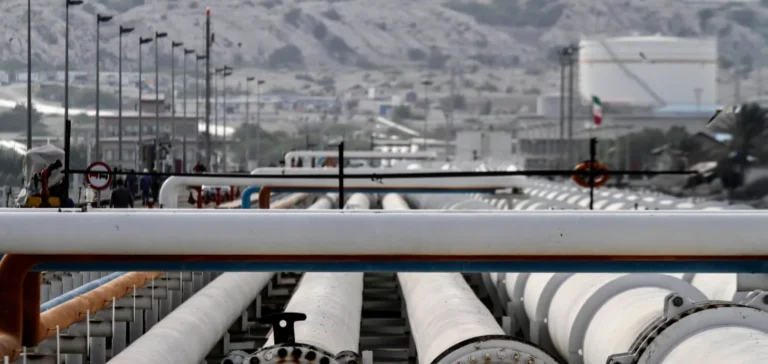Chinese independent refineries, mainly located in the eastern province of Shandong, are significantly reducing their Iranian crude oil imports due to exhausted annual import quotas and weakened demand. According to industry sources based in Qingdao and Shandong, volumes are expected to drop to around 1 million barrels per day in September, down from 1.86 million in August.
Volume collapse and price pressure
Data from S&P Global Commodity Insights shows that only 2.47 million metric tonnes of Iranian crude, equivalent to about 600,000 barrels per day, were discharged for independent refiners in September. Over the first eight months of the year, these refineries had imported an average of 1.37 million barrels per day, a 19% increase compared to the same period in 2024. The sudden drop in September directly reflects the impact of quota limits.
Iranian crude cargoes are often transferred ship-to-ship off Southeast Asia before arriving in China. They are then recorded as originating from Malaysia or Indonesia in official customs data, which does not report any imports directly from Iran.
Quota constraints and declining buyer interest
The declining appetite for Iranian crude has led to price weakening. Iranian Light crude was offered at a discount of $6 to $6.50 per barrel against ICE Brent futures, while Iranian Heavy was trading at a discount of $8 to $8.50 per barrel, according to refinery sources in Shandong. Few new contracts have been concluded, indicating a hesitant market.
“Supply remains sufficient, but only a few refiners still have quotas available. It’s easy to push prices down when there are few actual buyers,” said a Qingdao-based crude trader, speaking anonymously.
Impact on Venezuelan crude
The price pressure is not limited to Iranian oil. Venezuelan Merey crude, also popular among Chinese refiners, was offered at a discount of $7.50 to $8 per barrel, down from levels seen in late August. An independent refinery in Zibo indicated that some October-delivery volumes remain unsold, even as trading for November should have started.
The recent resumption of Venezuelan shipments to the United States, made possible by Chevron’s license reinstatement, could provide slight price support. However, persistently weak demand continues to weigh on the market.
No expectation of additional quotas
The main reason behind the drop remains the exhaustion of import quotas, according to several market sources. Many refineries had structured their annual operations around an eleven-month cycle, expecting additional quotas to cover December needs.
However, hopes for extra quotas are fading. The likely absence of new allocations is forcing several refiners to consider cutting throughput, turning to alternative supplies like fuel oil or domestic crude, or temporarily halting operations.






















